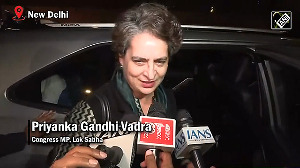FY09 turned out to be a year that the Indian auto makers would like to forget in a hurry. While in the first half, manufacturers continued to grapple with high interest rates and tight liquidity conditions, the onset of the global financial crisis made matters even worse during the third quarter of the fiscal.
Although the government came out with incentives and interest rates were also lowered, the damage had been done and the industry ended the year with a sub-par performance virtually across all the segments.
And while FY10 has begun on a better note, what with liquidity pressure easing and commodity prices softening up, it will be some time before all the segments revisit their long-term structural growth rates.
|
|
|
A weighted deduction of 150% for expenditure relating to in-house research and development will be extended |
|
|
A specific component to the ad valorem duty will now attract a uniform rate of Rs 15,000 per unit as opposed to Rs 15,000 for engines below 2000 cc and Rs 20,000 for engines above 2000 cc |
|
|
Reduction in excise duty on petrol driven trucks used for transport within cities and across short distances to 8% from 20% |
|
|
Higher allocation towards road development programme such as the NHAI |
|
|
Abolition of the FBT (Fringe Benefit Tax) |
|
|
Increase in the allocation to the defence sector |
|
|
Extension of R&D benefits will encourage more investments in this space and will make Indian auto sector competitive in the long run |
|
|
Higher defence allocation will spur investment in new vehicles. |
|
|
Higher agricultural credit outlay will help boost demand for tractors. |
|
|
Increased thrust on road infrastructure is a positive for all the automobile manufacturers especially passenger vehicles and CVs. |
|
|
R&D incentives to benefit companies like Bajaj Auto, M&M and Tata Motors that do not have any significant foreign collaboration and rely heavily on in-house R&D. |
|
|
Increased defence sector allocation to benefit companies like Ashok Leyland and M&M that are large suppliers to the defence sector |
|
|
Higher allocation to the agriculture sector to benefit tractor manufacturers like M&M |
|
|
Greater thrust towards creation of road infrastructure is a positive for the entire sector as a whole | |





